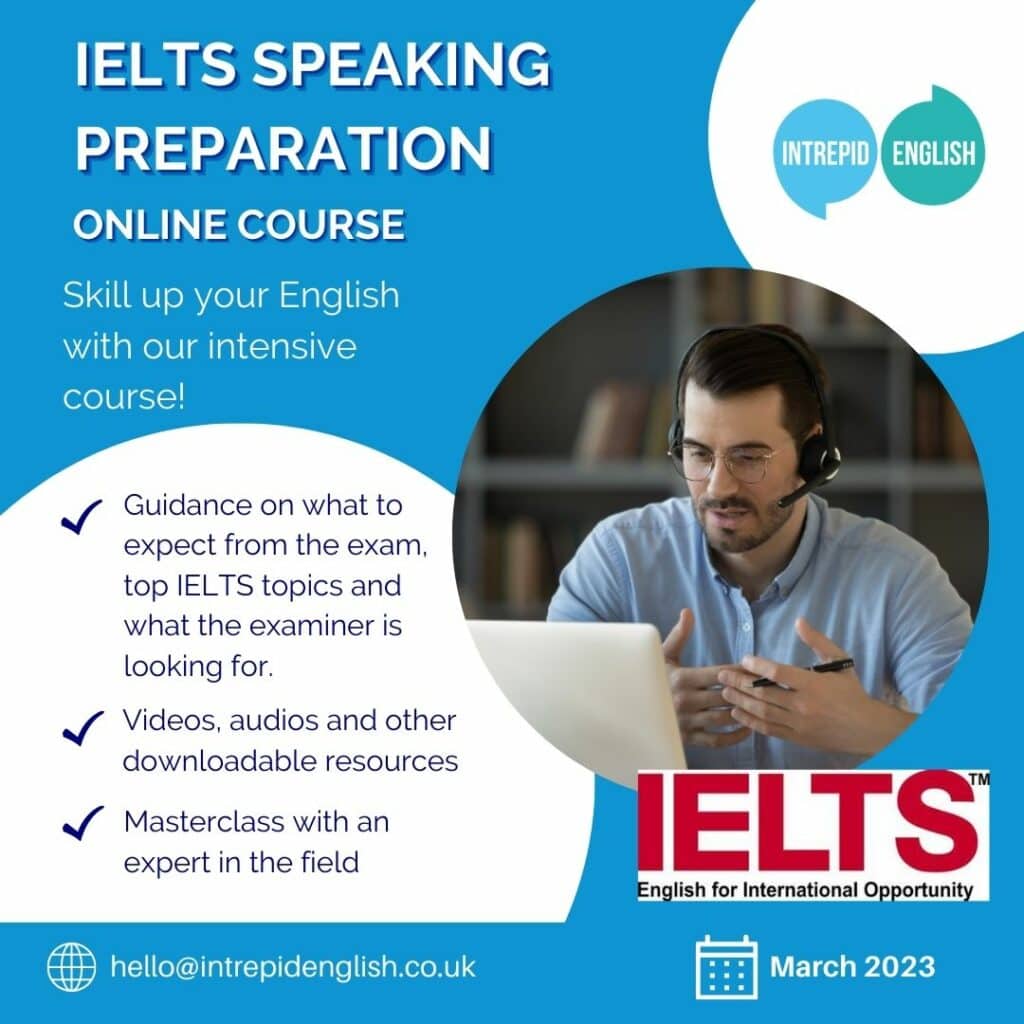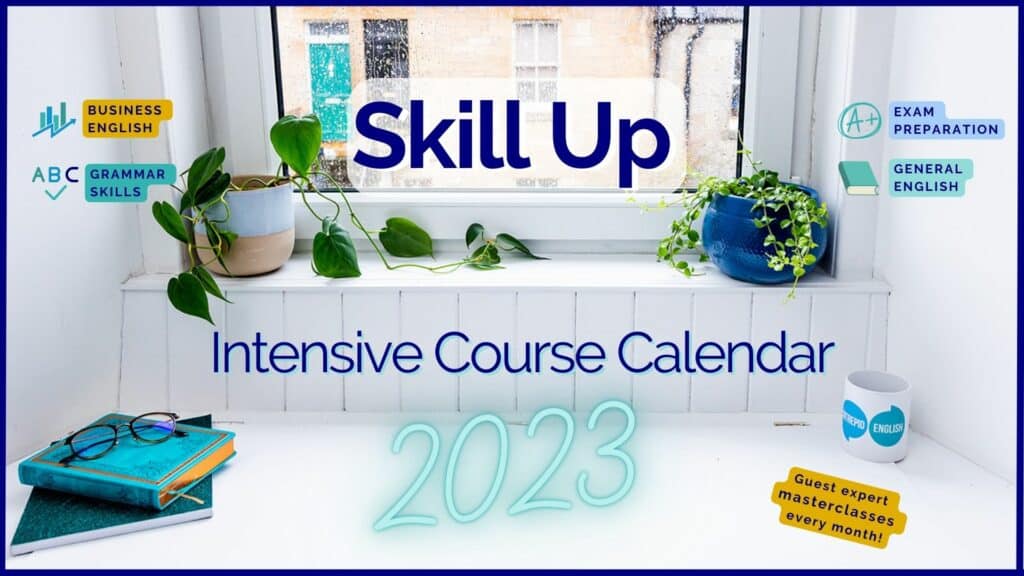Are you preparing for the IELTS speaking exam? Here at Intrepid English, we have helped many students to prepare for the IELTS exam, and to get the scores they need to succeed at work, smash their career goals, study abroad, or just feel more confident speaking English!
Whatever your reason for taking the IELTS exam, we have all of the resources to help you prepare! In today’s blog post, teacher Joanne gives her top tips for preparing for the IELTS exam.
Are you taking the IELTS this year? Skill Up with Joanne in March and April this year with our intensive online courses, Skill Up: IELTS Speaking Preparation and Skill Up: IELTS Writing Preparation. Find more information about these courses at the bottom of the blog post!
IELTS Top Tips
The IELTS speaking exam is split into three parts, part 1 is the interview section, part 2 is the individual long turn, and part 3 is the two-way discussion section. Throughout the exam, the examiner assesses the candidate across four criteria: fluency and coherence, lexical resource, grammatical range and accuracy, and finally, pronunciation; each is worth 25% of your total score. There are many ways to improve your speaking score. Let’s take a look at a few suggestions.
1. Try Recording your Answers
When practising your answers at home, try recording them and then playing them back. When you are listening to your answers, you can check and see what you can improve on. You will be able to know the length of your answers which will be helpful for the long turn section of the exam where you are expected to speak for around 1- 2 minutes on a given topic. When reviewing your answers, you should also listen out for the use of any fillers, such as ‘like’ or ‘em,’ as these fillers should be avoided.
2. Pronunciation ≠ Accent
The examiner will evaluate your pronunciation throughout the exam, so you must have good pronunciation. However, remember that you are not expected to have a native accent. The examiner is instead evaluating whether or not you can pronounce the individual sounds and words. An excellent way to help improve your pronunciation is to check the pronunciation of new words when you are learning them, listen to the correct pronunciation, and repeat it several times.
3. Use your planning time wisely
During part 2 of the exam, you are given 1 minute to plan your answer. Research shows that some students think about nothing during this planning time. I suggest you try to use this time to your advantage; use this time to help organise your ideas and think about how you will answer the question.
4. Don’t memorise your answers
It can be tempting to try to memorise your answers, but I don’t suggest trying to do this as it may appear unnatural. You can, however, learn powerful phrases which can be used in multiple answers.
5. Ask the examiner
Remember, this is the speaking exam, not the listening exam. If you did not hear the question, and need the examiner to repeat or clarify the question, you can and should ask the examiner. But
remember that asking the examiner to repeat all questions and explain every word would not be wise.
6. Don’t use words you are not familiar with
Using impressive words that you think will make your answer sound better can be tempting. However, you should only use words that you are familiar with. If you are unfamiliar with the word, there is a higher chance that you will use it incorrectly or mispronounce it, which could negatively impact your score.
7. Try not to panic if you make a mistake
If you make a mistake during the exam, correct your error and then move on. Try not to panic, as this may lead you to make more mistakes. Correcting your mistakes shows the examiner that you are aware that it was a mistake and that you know what it should have been.
8. Try to extend your answers
During part 1 of the exam, the examiner will ask you a series of interview-style questions; if your answer is too short, it shows the examiner that you cannot speak on the topic, so I suggest trying to add more detail to your answers.
Intensive Online IELTS Preparation Course
Do you need an IELTS qualification to progress at work, study abroad or apply for the job of your dreams? If the thought of the exam is making you anxious or keeping you up at night, then we can help!
The Skill Up: IELTS Speaking Preparation course running in March this year is packed full of tips and expert guidance on what to expect from the exam, top IELTS topics and what the examiner is looking for.
The course includes 4 1-hour group sessions with personalised feedback after each session, downloadable audio, video and written course materials, plus a guest masterclass from an IELTS expert!
This is the ultimate intensive course to get you IELTS-ready!
For more information about how we can help you smash your English goals, or if you have any questions, please don’t hesitate to contact us at hello@intrepidenglish.co.uk

Skill Up with Intrepid English in 2023!
We’re running a new intensive course every month in 2023 on English topics such as exam preparation, grammar, business English, and pronunciation. Make 2023 the year you smash your English goals! Make sure you don’t miss out on the courses that will benefit you the most. Download your free study planner below to see which courses are coming up.

